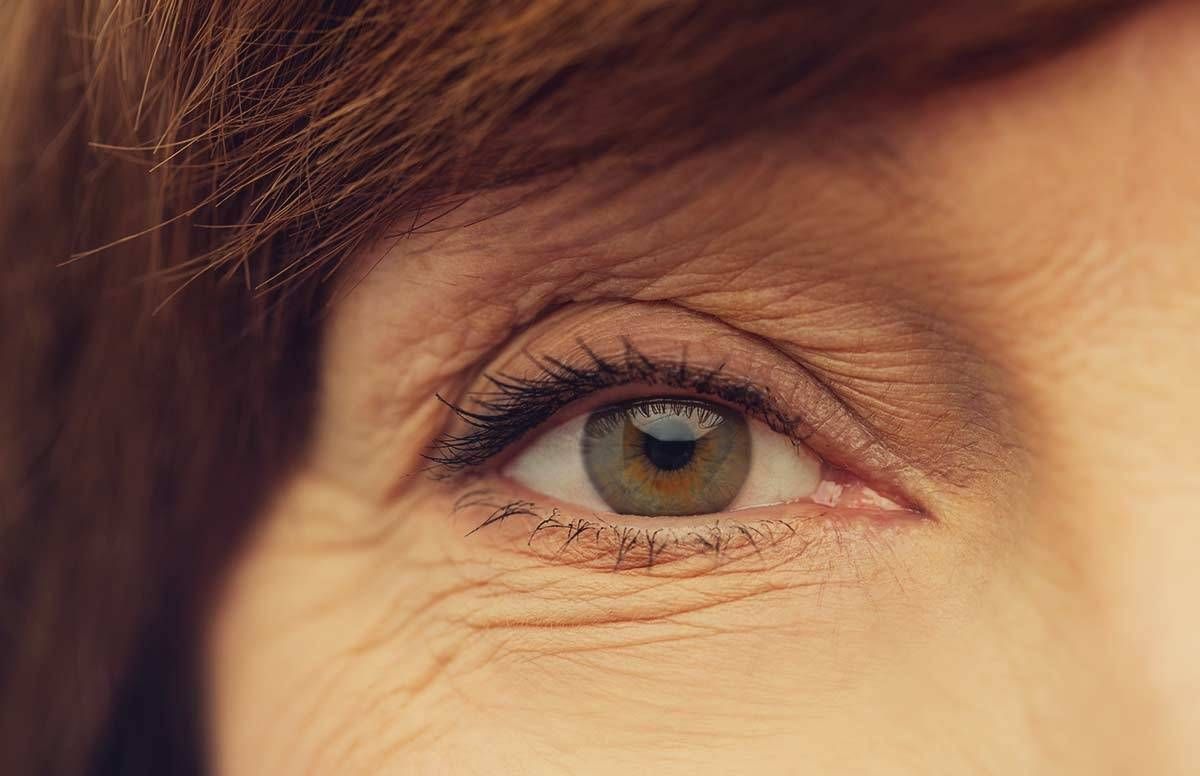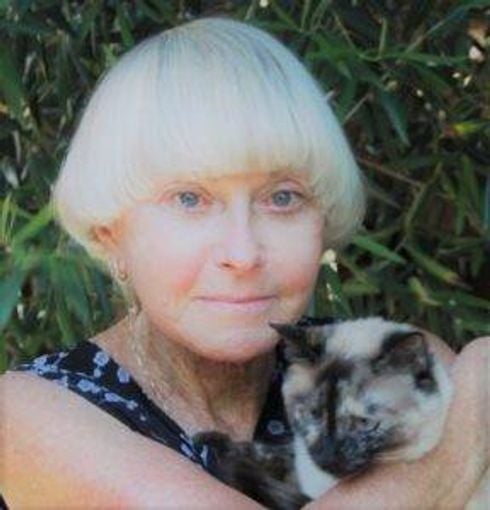Living with Thyroid Eye Disease
What one woman wishes she’d known sooner

(Editor's note: This content is sponsored by Horizon Therapeutics.)
Christine was a classic outdoorsy, active Californian. She would swim a mile a day and biked to wherever she needed to be. She was also a thriving photographer and website designer, which demanded a keen eye for detail. In the midst of her healthy and productive lifestyle, Christine suddenly began to dramatically lose weight and experience a rapid heart rate that made her rush to see a doctor.
A blood test confirmed that Christine had Graves' disease, which is an autoimmune disease that causes the thyroid gland to become overactive and produce too much thyroid hormone. For a few years after her Graves' disease diagnosis, Christine continued to live a relatively active, normal life until her eyes became unbearably red and swollen, which are telltale signs of a separate but related autoimmune disease called Thyroid Eye Disease (TED).
TED occurs when the body's immune system causes the muscle and fat tissue behind the eye to become inflamed and swollen. This triggers symptoms such as eye pain, redness, double vision, light sensitivity and eye bulging.
Up to half of people with Graves' disease may develop TED at some point in their lives. While the two diseases often occur at the same time, they are two separate conditions and require different treatment approaches.

"I didn't realize there were things I could do to help my eye symptoms until about three years into the disease," Christine recalls. "Previously, I was told that the eye changes I was experiencing, like the bulging, pain and incessant redness, simply had to run their course. But during that time, things got much worse."
Christine was devasted by the profound physical changes that TED caused to her appearance and it really took an emotional toll on her. "I could no longer recognize myself and actually frightened others as my face was transformed by TED. While I didn't let this hold me back from doing the things I love, TED can progress to a point that really reduces a person's confidence and independence," says Christine.
In Search of Answers, Finding a Community
Because TED is not yet widely understood by patients and even some health care professionals, experiencing its complex symptoms makes many who live with it feel isolated. Christine describes TED as "a lonely disease." "I was just trying to live my life like everyone else, but the symptoms of TED were crazy," she recalls. "My eyes were pushed out so much that they were almost out of their sockets."
Early detection and management are important because the swelling caused by TED can compress the optic nerve and threaten a person's vision. With early, proper action, eyesight can be preserved and long-term eye damage can be minimized.
Unfortunately, the road to diagnosis is long and difficult for many people living with TED due to some symptoms being similar to other, more common eye issues like dry eye and allergies. For Christine, it took years of physical and social discomfort until she managed to find a doctor with the right expertise to help her manage her TED. Not only did Christine gain much-needed clarity about her eye symptoms from this new doctor, she also found people online who also had TED and shared their stories.
"After years of living alone with this condition, I discovered a community of others with TED," Christine says. "Connecting with the right specialist and other TED patients was life-changing because I finally felt understood and knew what steps I needed to take."
Finding a TED specialist, like a neuro-ophthalmologist or oculoplastic surgeon, is an important first step toward getting information and support for TED. It is also important to advocate for yourself by doing your own research, tracking your symptoms and telling your doctor how TED is affecting your life in specific, personal ways. Because TED can be a lonely and emotionally distressing disease, it is also helpful to seek support from loved ones and others living with TED who can relate to what you are going through.
To learn more about TED, visit ThyroidEyes.com. The website includes information about the disease and helpful tools, like a symptom tracker and TED Specialist Finder.

Horizon Therapeutics is focused on researching, developing and commercializing medicines that address critical needs for people impacted by rare and rheumatic diseases. Our pipeline is purposeful: we apply scientific expertise and courage to bring clinically meaningful therapies to patients. We believe science and compassion must work together to transform lives.

